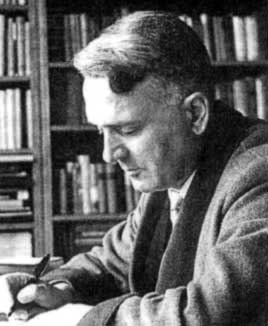


 تاريخ الرياضيات
تاريخ الرياضيات
 الرياضيات في الحضارات المختلفة
الرياضيات في الحضارات المختلفة 
 الرياضيات المتقطعة
الرياضيات المتقطعة
 الجبر
الجبر
 الهندسة
الهندسة 
 المعادلات التفاضلية و التكاملية
المعادلات التفاضلية و التكاملية 
 التحليل
التحليل
 علماء الرياضيات
علماء الرياضيات |
Read More
Date: 13-12-2017
Date: 16-11-2017
Date: 13-12-2017
|
Born: 19 December 1910 in Niedereggenen, Lörrach, Germany
Died: 14 February 2001

Helmut Wielandt entered the University of Berlin in 1929 and there he studied mathematics, physics and philosophy. There he was greatly influenced by Schmidt and Schur. In his speech accepting membership of the Heidelberg Academy in 1960 he said:-
It is to one of Schur's seminars that I owe the stimulus to work with permutation groups, my first research area. At that time the theory had nearly died out. It had developed last century, but at about the turn of the century had been so completely superseded by the more generally applicable theory of abstract groups that by 1930 even important results were practically forgotten - to my mind unjustly.
It was on the topic of permutation groups that Wielandt wrote his doctoral dissertation and he was awarded a doctorate in 1935. From 1934 until 1938 he worked on the editorial staff of Jahrbuch über die Fortschritte der Mathematik in Berlin. From 1938 he was an assistant at Tübingen where he submitted his habilitation thesis in 1939. Wielandt described the contents of his habilitation thesis in the following way:-
The work on permutation groups led me inevitably to involvement with the structure theory of finite groups. In the twenties this theory had fallen into neglect ... But Philip Hall's fundamental papers had already revitalised it. Where Hall had started from arithmetical questions and product decompositions, my own work was triggered by a question of Robert Remak of a quite different type: is the group generated by two subgroups that occur in composition series always of the same kind? In my Habilitationsschrift I expanded the discovery that this question can be answered affirmatively to a detailed study of the normal structure of finite groups.
Although Wielandt was formally on the staff at Tübingen until 1946, during World War II he was on leave for military service. He underwent basic training in 1939 and artillery training in 1940. Then from 1941 he was engaged in research on meteorology, cryptology and aerodynamics. Then in 1942 he was attached to the Kaiser Wilhelm Institute and the Aerodynamics Research Institute at Göttingen. Describing this work Wielandt said:-
... I had to work on vibration problems. I am indebted to that time for valuable discoveries: on the one hand the applicability of abstract tools to the solution of concrete problems, on the other hand, the - for a pure mathematician - unexpected difficulty and unaccustomed responsibility of numerical evaluation. It was a matter of estimating eigenvalues of non-self-adjoint differential equations and matrices.
At the end of World War II Wielandt was appointed associate professor at the University of Mainz. He remained there until 1951 when he was appointed Ordinary Professor at the University of Tübingen. He remained at Tübingen until he retired in 1977 but during this time he spent two periods at the University of Wisconsin, Madison, one in 1963 and the second from 1965 to 1967. He also held a number of visiting positions in the United States, at the University of Warwick, England and at the University of Brazil.
For 20 years beginning in 1952 Wielandt was managing editor of Mathematische Zeitschrift.
Wielandt's research work continued on finite groups and on permutation groups. One of the areas which his work took him into was infinite permutation groups. He contributed greatly to linear algebra and matrix theory. Among his contributions was a shorter, elegant proof of the Perron-Frobenius Theorem.
Wielandt believed that the axiomatic method had produced major advances:-
By turning increasingly towards the abstract, revolutionary unification has been achieved in mathematics. It is as if some areas of mathematics which earlier could hardly be reached on foot are now connected by motorways.
However he was convinced, from his student days onwards, that the axiomatic method had limitations and carried his research forward on with this belief:-
... I could not share the general opinion that this would henceforth be the only rewarding direction for research. It seemed to me that, like all great deductive systems, it was threatened by the danger that the problems which it could not properly accommodate would be dismissed as uninteresting, whereas on the contrary, these ought to provide a stimulus to broaden the foundation.
Articles:



|
|
|
|
دراسة: حفنة من الجوز يوميا تحميك من سرطان القولون
|
|
|
|
|
|
|
تنشيط أول مفاعل ملح منصهر يستعمل الثوريوم في العالم.. سباق "الأرنب والسلحفاة"
|
|
|
|
|
|
|
لتعزيز التواصل مع الزائرات الأجنبيات : العتبة العلويّة المقدّسة تُطلق دورة لتعليم اللغة الإنجليزية لخادمات القسم النسويّ
|
|
|